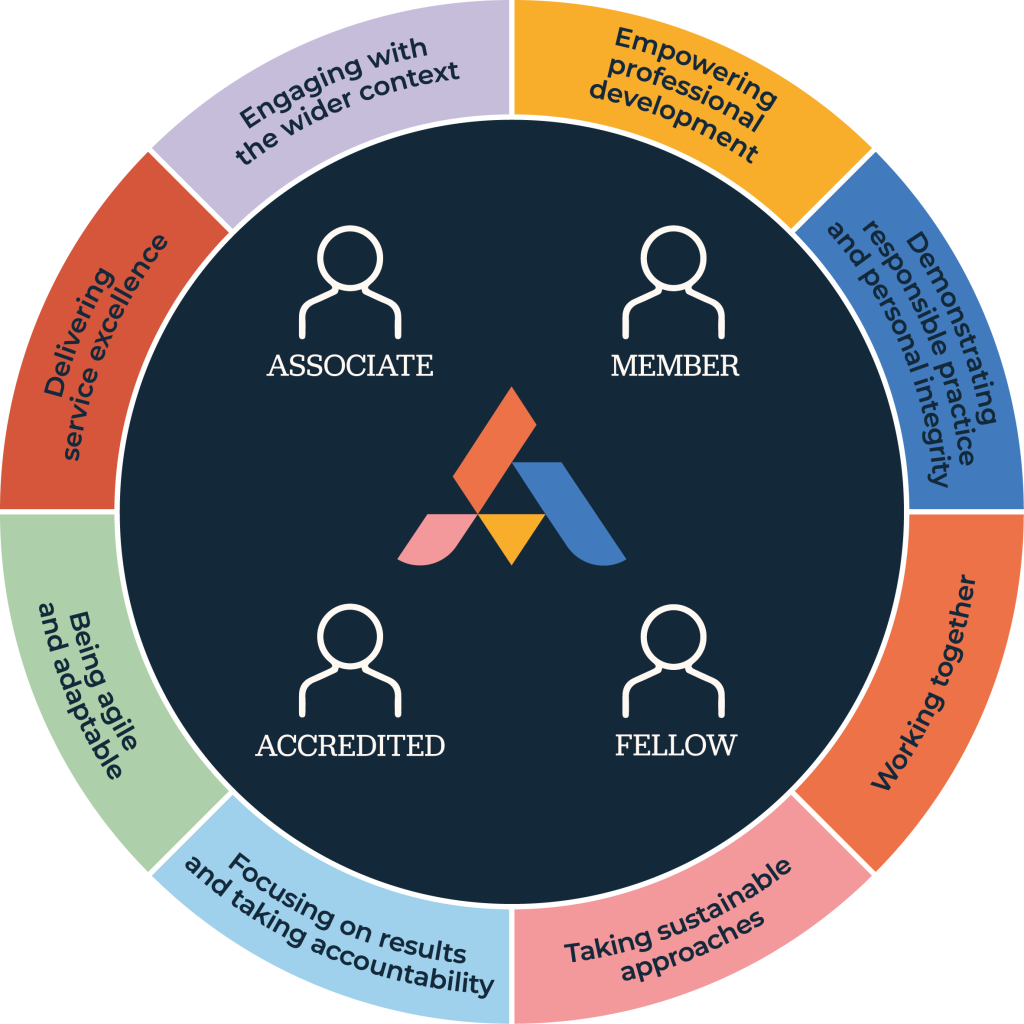Getting prepared
We understand that embarking on study can be a real challenge. As an applicant to the programme your range of experience and academic level of study will vary so in order to help you prepare for self-directed learning we have provided some resources in this webpage we hope you find useful – these cover study skills, reflection and HE knowledge areas.
Make the most of the time before you start the programme by reading through the resources and suggested texts on this webpage.
Full reading lists will be made available to you on the Nottingham Trent Online Workspace (NOW) when you have enrolled, along with access to NTU’s library resources.

Self-directed study
One of the main challenges students will face is adapting to become an independent and self-directed learner. Our PgCert programme provides a supportive framework for students to develop their skills and acquire knowledge. Understanding what self-directed study involves will help you to think about your own learning style. You will need to think about how you will determine and manage your development needs to become a successful independent learner.

Becoming an independent learner is a part of level 7 (master’s level) study. Self-directed study is about managing your learning according to what your needs are and taking responsibility for that learning process.
Some characteristics of a successful independent learner include:
– Enjoyment of learning
– Seeking out opportunities to learn
– A knowledge of how you learn best (eg by reading, by doing, group discussions)
– An ability to identify what is impeding your learning
– Knowing what you know, and what you need to know
– Accepting responsibility for your own learning, setting goals, finding resources, and for evaluating the outcomes of your learning activities
Keep the end goal in sight! Think about what’s going to keep you going as you study alongside your work and personal commitments. It’s important that you have a real interest in the sector and your professional development.
It might be that you have chosen postgraduate study for several different reasons; to broaden your understanding of HE, to gain an academic qualification or further your career. It’s worth really thinking about why you want to study and how you’ll feel once you’ve achieved this at the end of the 12 months!
Talking to our students, we know that finding time to study can be the biggest challenge so thinking of ways you can incorporate it into your current routine will really help.
Plan – Look at the timeline of key dates for assessment and study days and work out where there might be crunch points at work or at home and plan in advance. Factor in buffer time for unexpected events so that your deadlines aren’t affected.
Prioritise – Think about some things that might have to take a back seat while you prioritise your study.
Utilise – Are there times in the day or week where you could be studying? Using your daily commute to read or your lunchtime to add to your learning logs, perhaps? Think about your time and how to use it more effectively.
Commit – Make a commitment to your study in your diary and protect your time. Putting regular appointments in your calendar and sticking to them protects your time and helps you keep the habit. It shows friends, family and colleagues that you are committed to your studies and unavailable during those times.
It might be helpful to ask your employer about whether study leave options are available to you.
Study skills refer to the skills you need to enable you to study and learn efficiently.
When it comes to academic study the first step will be understanding what study skills you need.
It might be some time since your first degree, or you may not have studied academically at all, whatever your level there will be things that you will need to familiarise yourself with. Understanding and working on what skills you need to succeed at postgraduate level now will help you when you come to research your assessment topics and content.
Further guidance and reading has been provided below.
While you’re studying it’s really good to have a supportive network around you that understands the commitment you’ve made to your professional development. Even if that is simply in the form of your friends or family understanding and respecting the time you’ve allocated to study.
Your support network can be made up of a selection of people for different things and for different stages in your study. Think about the resources that are available to you but also try to think beyond your immediate context of work.
Keeping in touch and making connections with your fellow students on the programme early on will really help you as you study – you’re all in the same boat so when you’re working at a distance it’s good to know that your peers are there with you.
As a work-based learning programme your colleagues could be a really helpful resource when it comes to reflecting on your professional practice – identifying your strengths for example, this will be particularly useful when you come to focusing on your areas for development.
You’ll also be allocated an AHEP mentor who will be there to help support you and your professional development journey.
Think about other resources within your institution. Studying the PgCert gives you the opportunity and excuse to talk to people within your institution that you may not ordinarily have any contact with – they can give you some great insight into the knowledge areas you might be working on and it’s a brilliant way to network.
Study skills
There are a number of study skills guides available. Not everyone engages with the same material or style of presentation, so the main thing is to find one which works for you.
Recommended reading
As a starting point Stella Cottrell’s Study Skills Handbook will be a very useful text and many of the following resources refer to this guide:
Cotrell, S., 2013. The study skills handbook. 4th ed. London: Palgrave Macmillan.
Look for resources in the following areas:
Critical reading
Reading texts critically is an essential part of academic study and will be the precursor to your critical writing. Essentially, it involves not taking the text at face value. Active reading and note taking will also help with this process. The Open University’s study skills webpages are a helpful resource:
The Open University. Critical Reading [online]. Available at: https://help.open.ac.uk/critical-reading [Accessed 26 June 2023].
Critical writing
Writing critically is an expected part of postgraduate study; exploring academic theories and engaging with academic debate through evidence, analysis and evaluation. There are guides to help with this.
University of Birmingham. A short guide to critical writing for postgraduate taught students [online]. Available at: https://intranet.birmingham.ac.uk/as/libraryservices/library/asc/documents/public/pgtcriticalwriting.pdf [ Accessed 26 June 2023].
University of Plymouth. Critical Thinking [online].
https://www.plymouth.ac.uk/uploads/production/document/path/1/1710/Critical_Thinking.pdf [ Accessed 26 June 2023].
Referencing and citations
Accurate citations and referencing are integral to good academic writing, not only to ensure you are correctly attributing the evidence, quote or theory to its author and avoiding plagiarism, but also to support your argument or analysis within your writing. Referencing conventions will vary. NTU uses NTU Harvard Referencing: NTU Library Referencing pages.
Access resources locally
It’s very likely that as a staff member you’ll have access to your institution’s library and maybe even their academic skills workshops.
You need to start thinking like a student so take the time to investigate what’s on offer to you alongside those resources that NTU and your NOW (VLE) learning rooms can provide.

Further suggested reading on study skills is provided below.
Reflective practice
We highly recommend Jennifer Moon’s text on reflection within learning and there are other resources of hers online that you may find useful.
Moon, J. A., 1999. Reflection in learning and professional development: theory and practice. London: Kogan Page.
Part 1 contains an excellent summary and critique of the way in which reflection has been applied by academics across various disciplines. In Part 2, Moon develops her argument about the place of reflection in learning. Part 3 contains a number of practical suggestions for developing reflection in learning.
HE knowledge areas
The UK higher education system is broad and few readings cover all of the aspects of the programme.
An interesting read is David Willetts’ text entitled A University Education.
Willetts, D., 2017. A university education. Oxford: Oxford University Press.
It is also important to keep up to date with developing policy issues in HE.
The free weekly email from WonkHE is a useful way to stay abreast of debate – sign up for it here: https://wonkhe.com
Most importantly you should ensure you keep up to date with the THES and the Perspectives Journal (as an AHEP member you will have free access to this).
Further reading
Brockbank, A., McGill, I., and Beech, N.C., 2002. Reflective Learning in Practice. Aldershot: Gower.
Gibbs, G. 1988. Learning by Doing: A guide to teaching and learning methods. Further Education Unit. Oxford Polytechnic: Oxford.
Kolb, D., 1984. Experiential learning: experience as the source of learning and development. New Jersey: Prentice Hall.
Schön, D. A., 1987, Educating the Reflective Practitioner. San Francisco: Jossey-Bass
Schön, D. A., 1994. The Reflective Practitioner: How Professionals Think in Action, London: Temple Smith.
Walker, D., 1985. Chapter 3 in Boud, D., Keogh, R., & Walker, D. eds. Reflection: turning experience into learning. London: Kogan Page.
Zubizaretta, J. 2008. Idea Paper #44 The Learning Portfolio: A Powerful Idea for Significant Learning [online]. Ideaedu.org Available at: ideaedu.org/wp-content/uploads/2014/11/IDEA_Paper_44.pdf [ Accessed 26 June 2023]
NTU recommended text for learning returners undertaking work based study
Helyer, R., 2010. The Work-Based Learning Student Handbook. London: Palgrave.
NTU recommended text for learning returners/mature students
Barnes, R., 1995. Successful study for degrees. London: Routledge. An entertaining and intelligent look at learning and studying.
Cottrell, S., 2013. The study skills handbook. 4th ed. London: Palgrave.
Northedge, A., 2005. The good study guide. Milton Keynes: Open University. (A useful guide to studying with plenty of practical suggestions and exercises to work through)
University of Edinburgh, Institute for Academic Development, Study Hub Learning Resources available online here: https://www.ed.ac.uk/institute-academic-development/study-hub/learning-resources
[ Accessed 26 June 2023]
University of Manchester, 2008. Study Skills guidance for Postgraduate Students [Online], University of Manchester, Faculty of Humanities. Available at: humanities.manchester.ac.uk/studyskills [ Accessed 26 June 2023]
NTU’s ‘Skills for success’ resources available online here: https://www4.ntu.ac.uk/current_students/studying/skills-for-success/index.html
[Accessed 26 June 2023]
University of Sussex on Critical Thinking: http://www.sussex.ac.uk/skillshub/?id=431
[Accessed 26 June 2023]
University of Birmingham. A short guide to critical writing for postgraduate taught students [online]. Available at: https://intranet.birmingham.ac.uk/as/libraryservices/library/asc/documents/public/pgtcriticalwriting.pdf [Accessed 26 June 2023]
Morley, J. Academic Phrasebank [online]. University of Manchester. Available at: http://www.phrasebank.manchester.ac.uk/ [ Accessed 26 June 2023]
AHEP Framework

The AHEP Professional Framework is a versatile tool to support your career development.
Understanding and engaging with the AHEP professional commitments will form part of the PgCert.
Access guidance and resources here: https://ahep.ac.uk/ahep-professional-framework/

